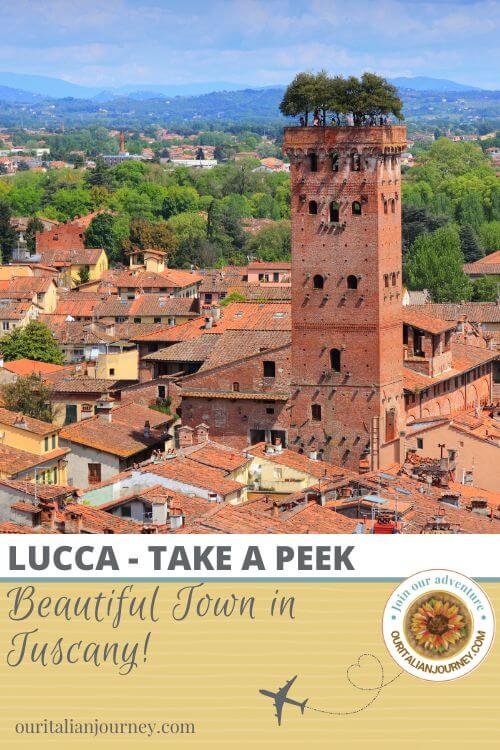Lucca
Let’s explore the charming hill town of Lucca. It’s a wonderful destination with fewer tourists compared to other popular Tuscan towns. We’ve had the pleasure of staying in Lucca multiple times, always within the medieval walls, which are part of the “historical center.” This central location is my preferred spot when visiting a town.
As I update this post, I’m excited to share that we now call Lucca our home in Italy. It’s amazing to revisit our posts with newfound insights and information, thanks to our experiences living here. So, let’s take a closer look at Lucca…
This post contains affiliate links that help support this website. By purchasing through our links, you contribute to our site at no extra cost to you. Thank you for your support!
The Fosso
During each of our stays, Gary and I uncovered more about Lucca. We anticipated spending about seven months here in 2021, using Lucca as our base to explore nearby towns. Surprisingly, we never wanted to leave.
Lucca features an unexpected waterway that runs through part of the old town, from the north to the south on the eastern edge of the historic center. The water level in this canal changes daily, and at times, the flow can be quite fast. This waterway was once vital to the silk industry, with factories located along the “fosso.” Interestingly, we reside in a building that was formerly one of those factories, specifically in the “servants’ quarters.” It’s quite a story!
Lucca is a town filled with charm and history, set in the heart of Tuscany. Often overlooked by its more famous neighbors like Florence and Pisa, it offers a calm yet enriching experience. Known for its well-preserved Renaissance walls encircling the historic city center, Lucca is a gem of medieval architecture, scenic streets, and a lively local culture. Its blend of historical importance, artistic legacy, and contemporary vibrancy makes it a must-visit destination for those seeking an authentic Tuscan experience. But shh… don’t let my friends know I’m sharing this; let’s keep it just between us!
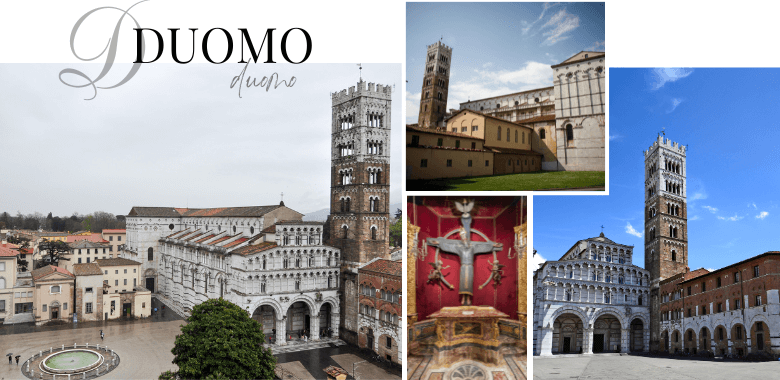
Cattedrale di Lucca
The façade of the Cathedral displays a Roman-Pisan style, adorned with a bell tower standing approximately 60 meters tall. The cathedral is designed in the shape of a Latin cross, featuring three naves and a transept. It measures 84 meters in length, 27 meters in width, and 27.5 meters in height. The complex of St. Martin’s Cathedral includes the Cathedral itself, the bell tower, a museum, the church, and the Baptistery of Saints Giovanni and Reparata.
This Duomo is one of our favorites. There’s so much to see and discover inside, and the information booklet provided at the entrance is filled with details. To fully appreciate all that this cathedral has to offer, you should plan to spend at least an hour here.
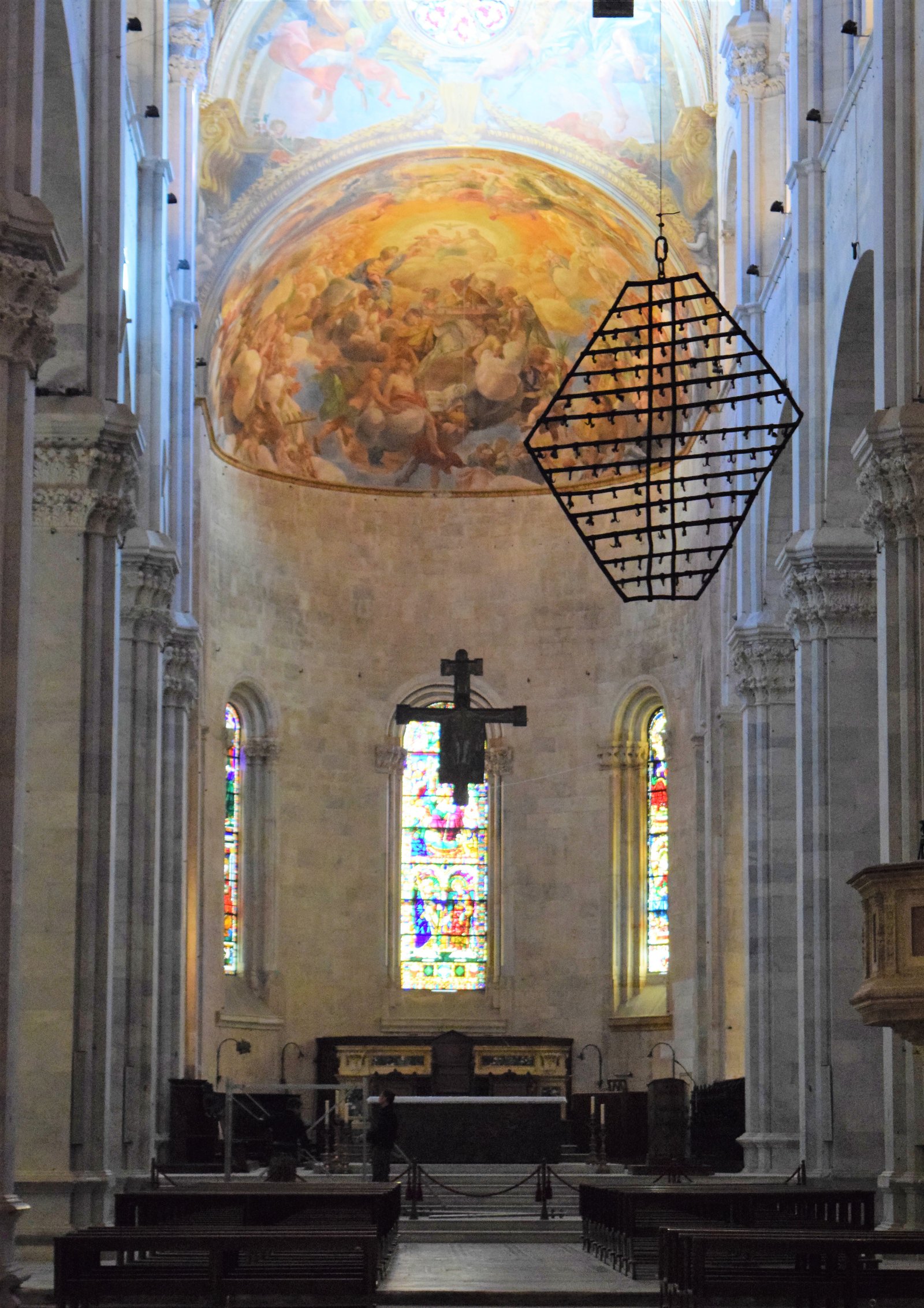
Lucca: A Glimpse at the Bell Tower
Climbing the bell tower involves 217 steps, but the breathtaking views of Lucca make it worth every step. Thankfully, the bells didn’t ring while we were at the top, or I surely would have lost some hearing! The vistas from up there are absolutely stunning!
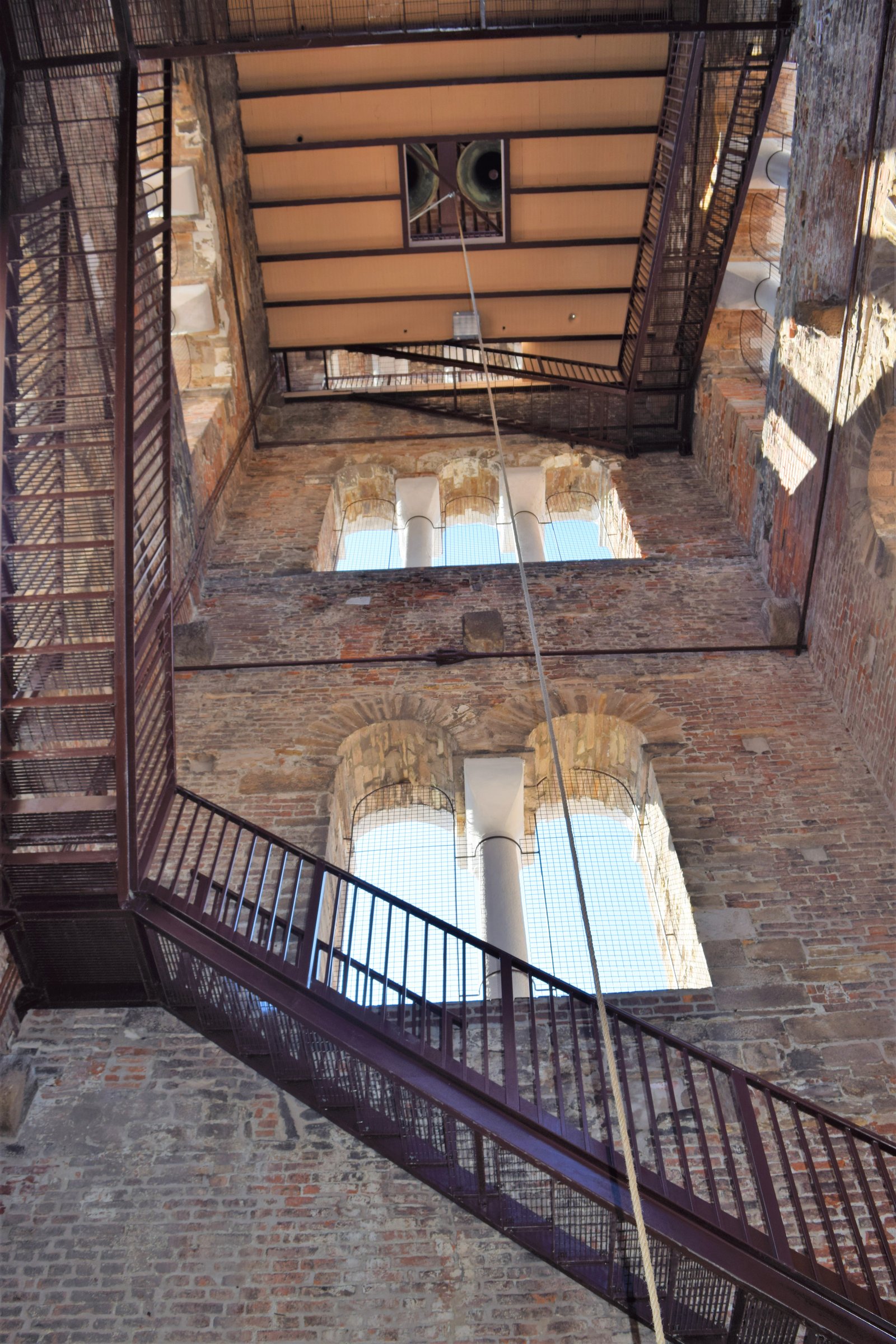
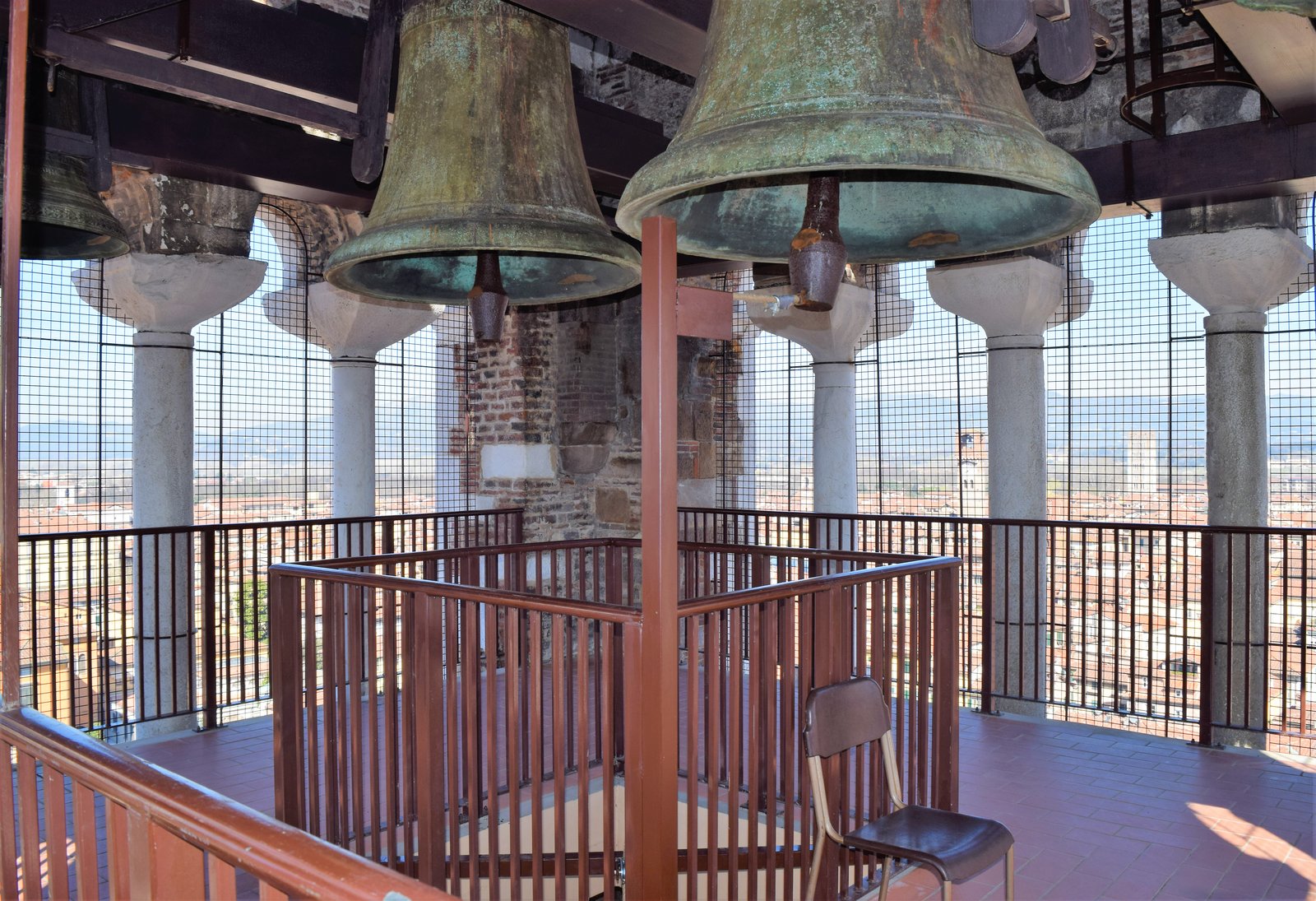
Both of these books beautifully encapsulate the essence of Italy, its people, and the strong sense of community that characterizes life in small Italian towns. Through lyrical prose and reflections, Ilene and Gary invite readers on a journey of self-discovery and transformation in the heart of Tuscany.
Both books have been honored with the Reader Ready “Recommended Read Award.”

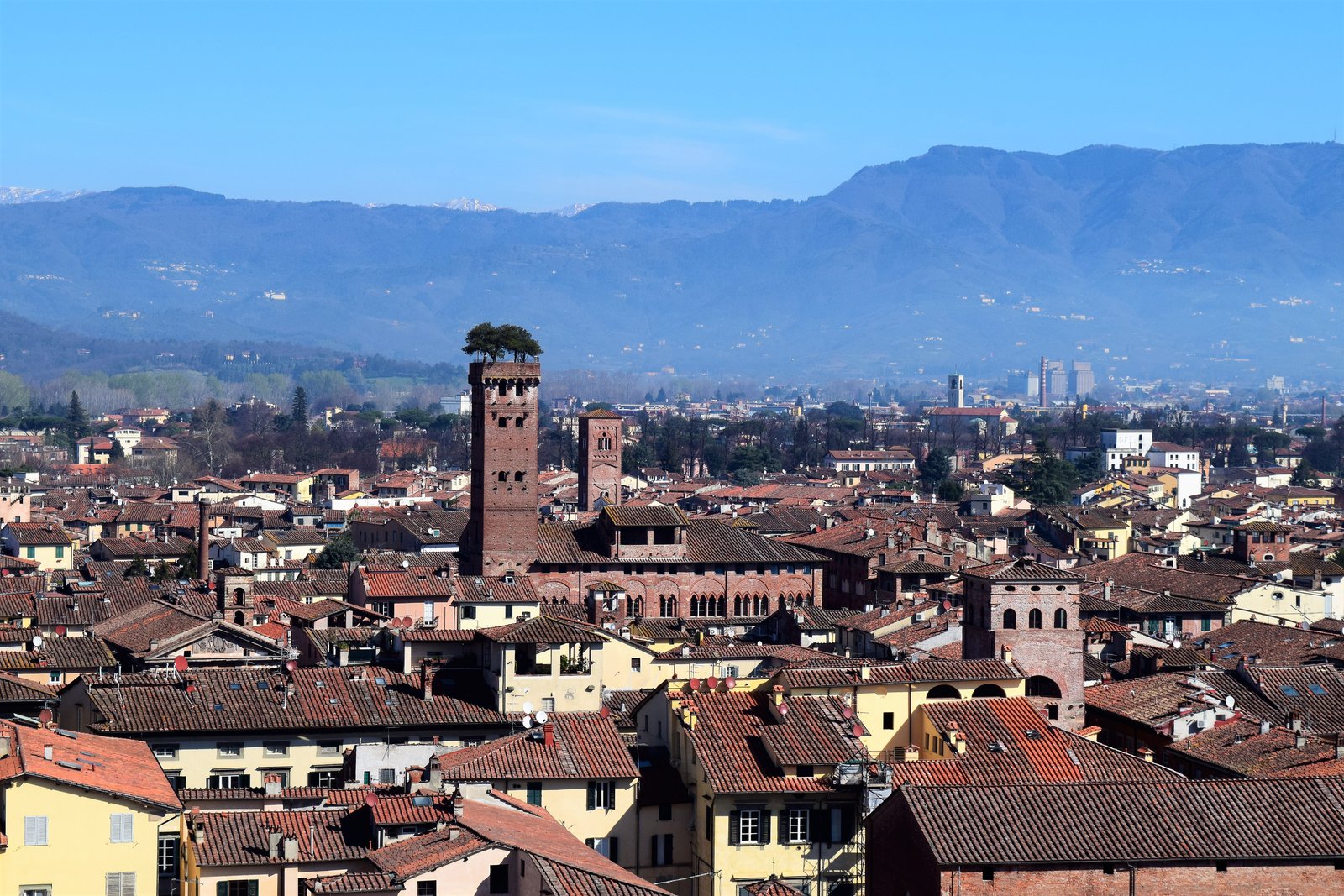
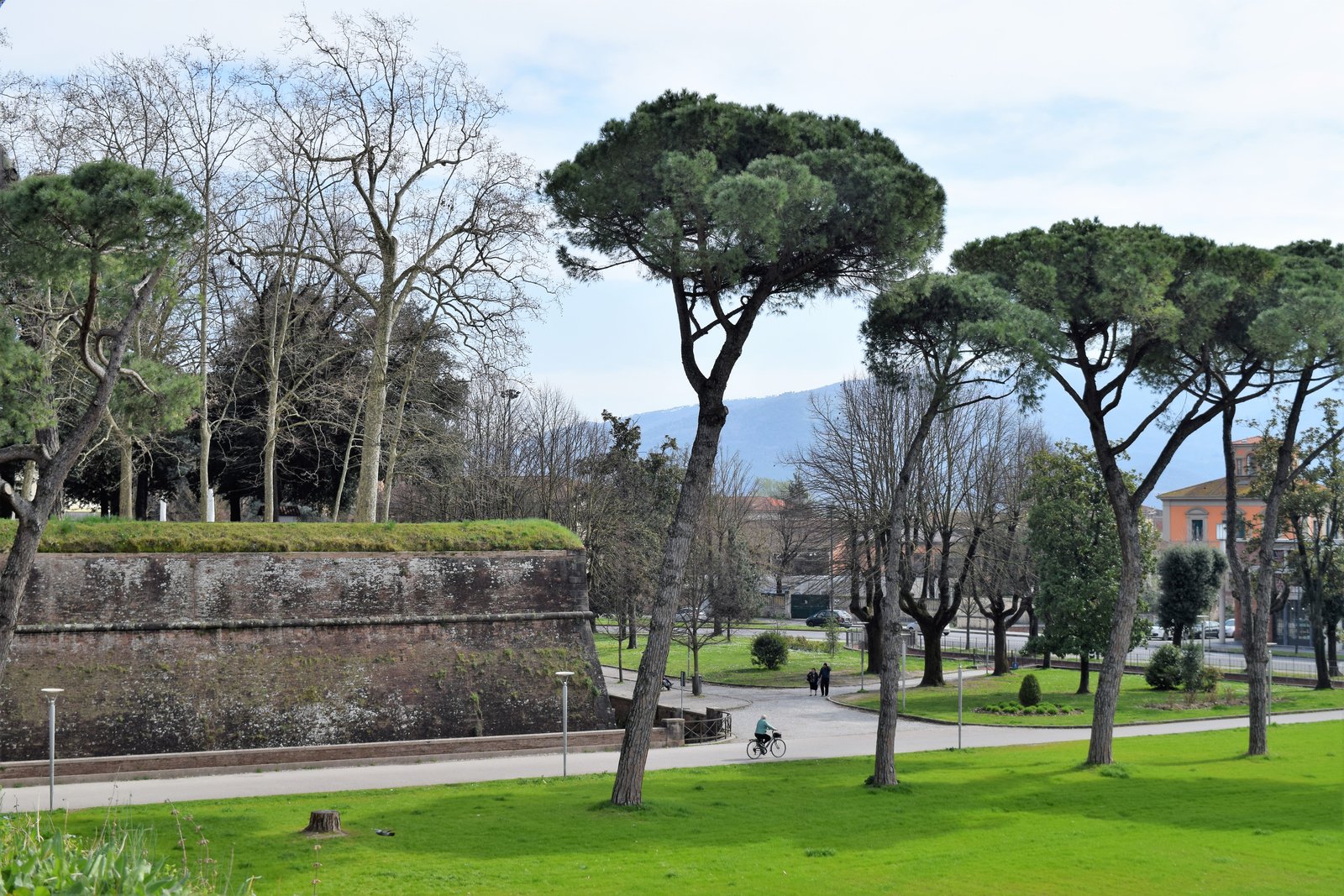

The Baptistery
Don’t miss The Baptistery! The Church of Saints Giovanni and Reparata boasts stunning paintings, many of which were under restoration during our visit. We ventured beneath the baptistery to see an archaeological site dating from the 1st century B.C. (the remains of a Roman Domus) up to the 12th century A.D. The mosaics here are remarkably beautiful and well-preserved. It was truly enchanting to be so close to history, to touch it, and to ponder who might have stood in this very spot all those years ago.
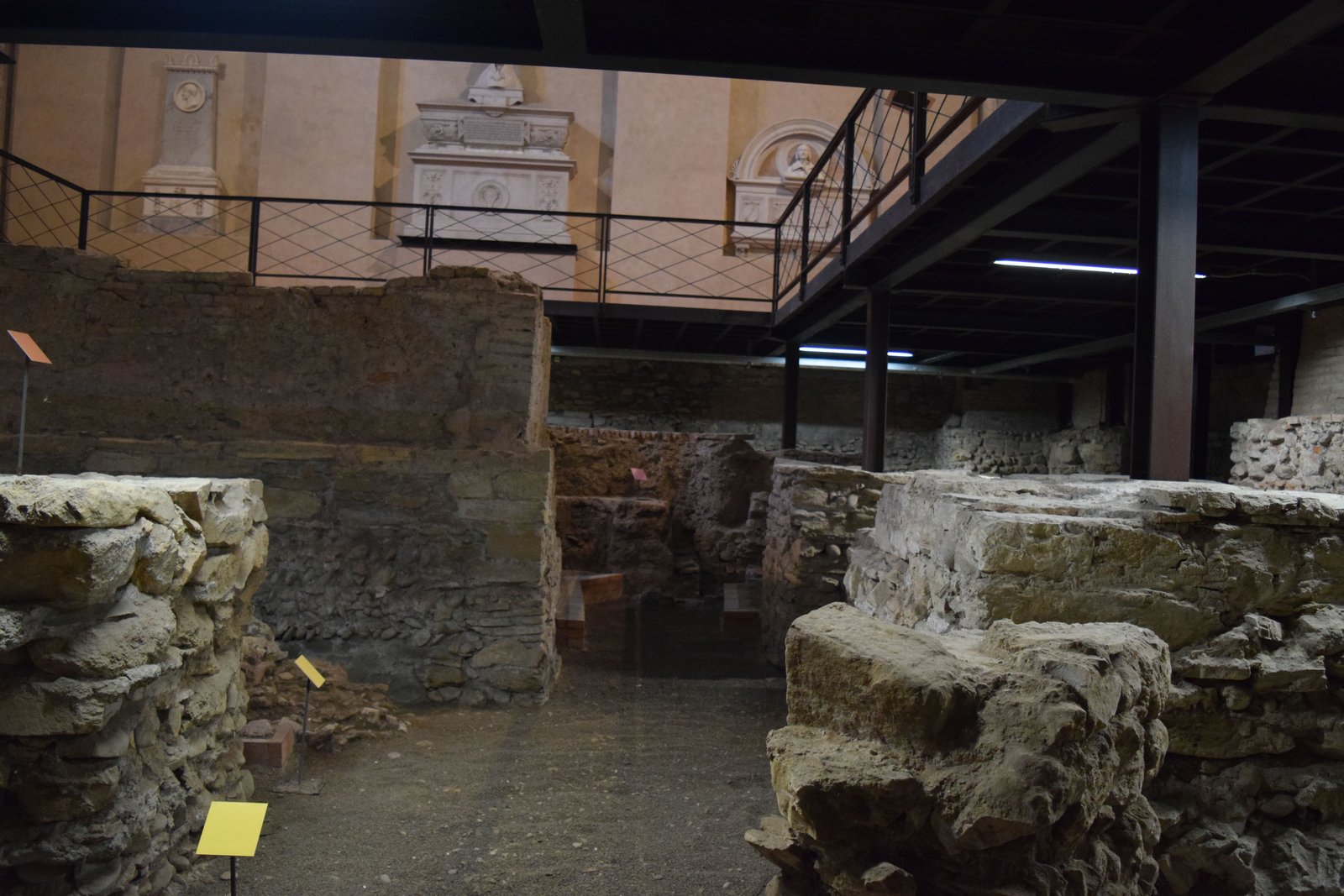
Guinigi Tower
This tower is steeped in history and is Lucca’s most iconic landmark. The 45-meter-tall red-brick tower, attached to the 14th-century Palazzo Guinigi, is spectacular. Even more impressive are the seven oak trees planted in a U-shaped flower bed atop the tower. The climb is quite manageable; there are 233 steps, all well spaced and even, except for the final few. While the views from the top are stunning, you can also appreciate the tower’s beauty from the street below.
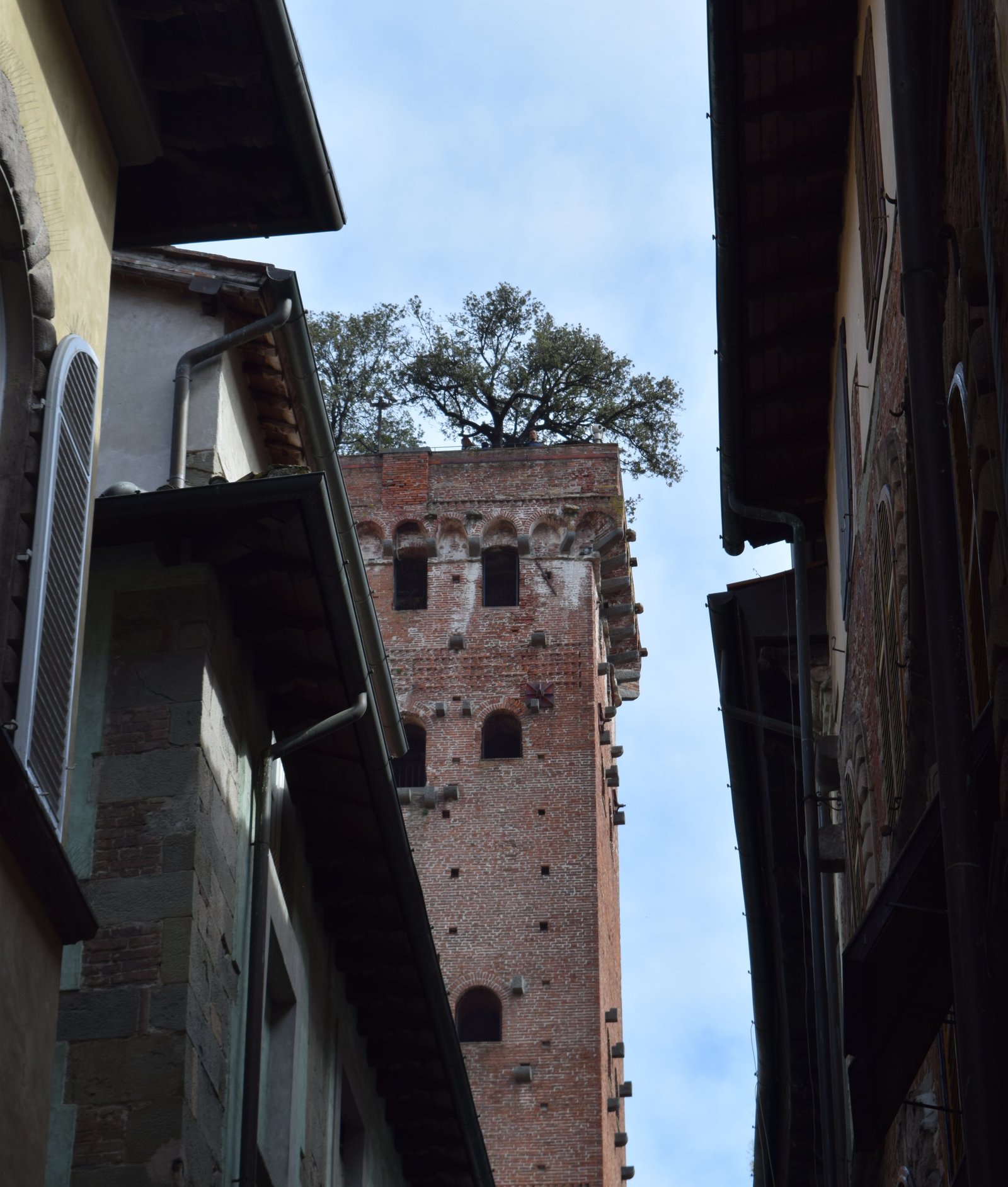
“Le Mura” – The Wall
Unlike many Italian cities that have torn down their walls for urban development, Lucca’s Renaissance-era walls have been meticulously preserved and transformed into a delightful public promenade. Spanning just over 2.5 miles (4 kilometers), these walls provide a perfect setting for leisurely strolls or bike rides, showcasing panoramic views of the town and the surrounding Tuscan countryside. It’s a favorite activity of ours, whether we’re a couple relaxing or I’m out catching up with friends. Take a tip from the locals: rent a bike to explore the town (or the wall) at your own pace. With its flat landscape and well-marked cycling paths, Lucca is a cyclist’s delight, offering a unique appreciation of its timeless beauty. And don’t miss exploring beneath the walls—there are several passageways where food and supplies were moved during attacks.
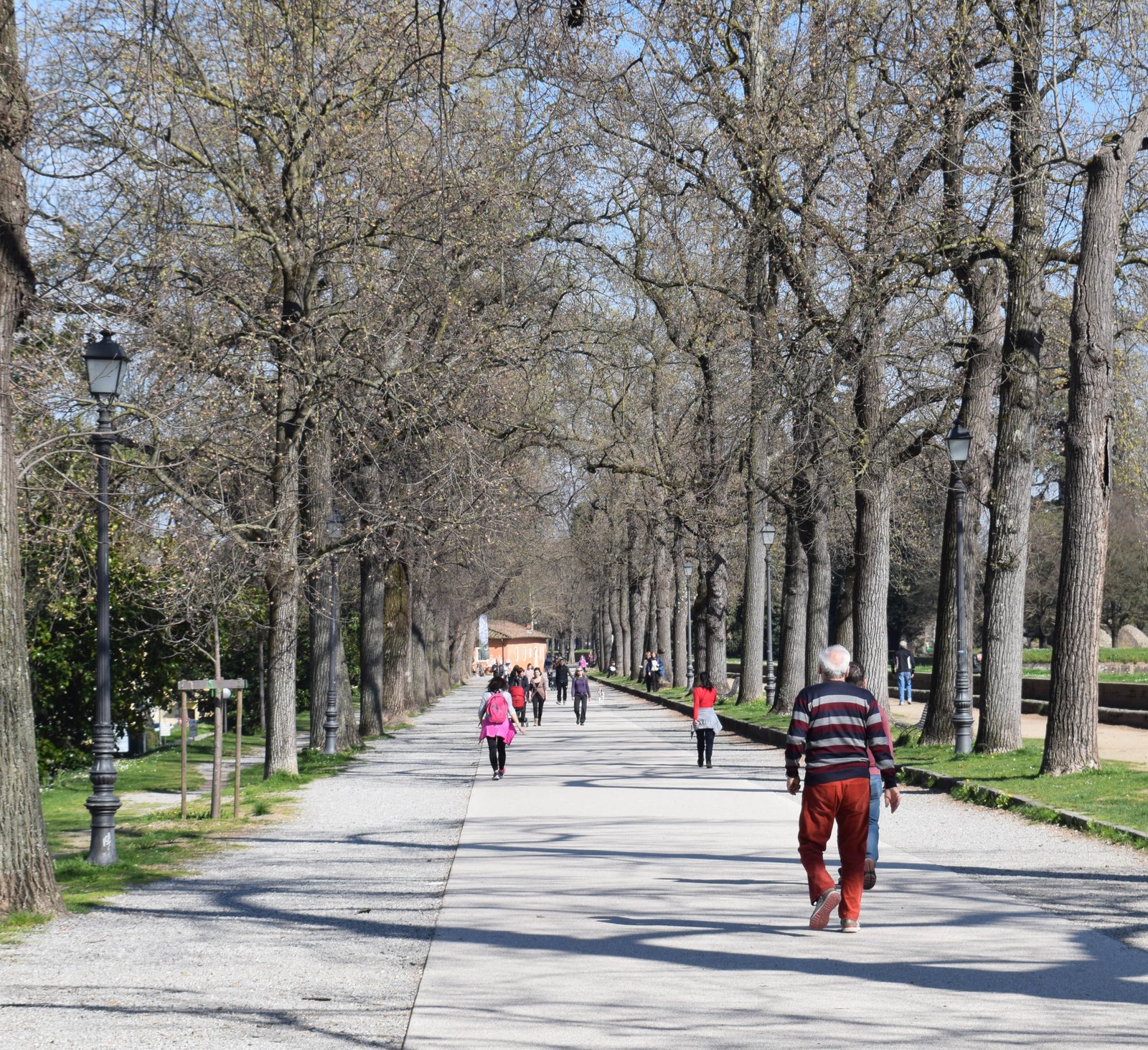

One of Our Favorite Places in Lucca
One of our favorite spots in Lucca is Piazza dell’Anfiteatro. This oval-shaped public piazza is bordered by homes and restaurants and features four arched entrances. It is a must-visit when you’re in town.
More Information About Visiting Lucca:
Places to Stay in Lucca
Restaurant Recommendations in Lucca
If you find yourself in Pisa, Lucca is just a short distance away and definitely worth a visit, even if only for a day! We hope we’ve given you plenty of reasons to explore Lucca.
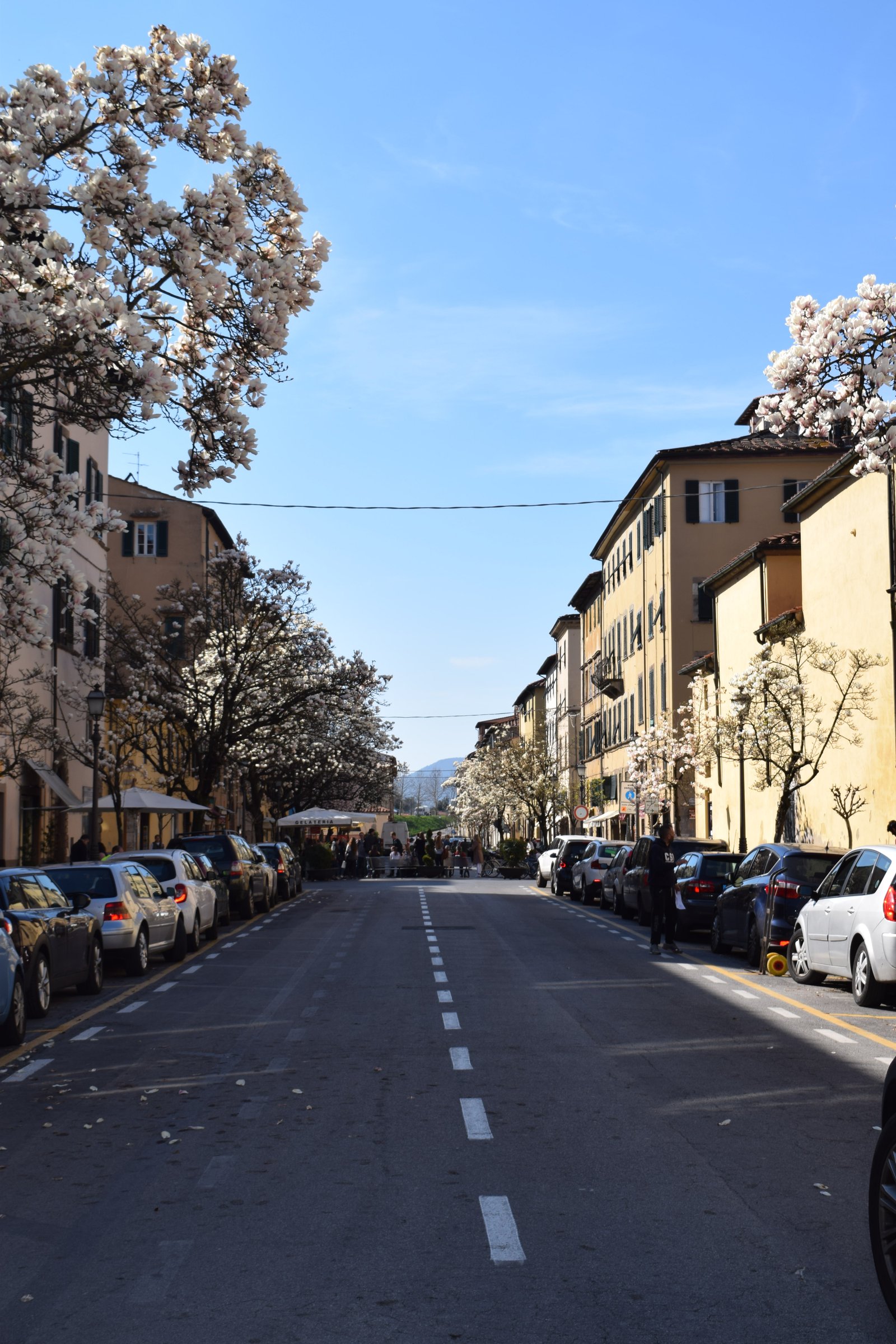
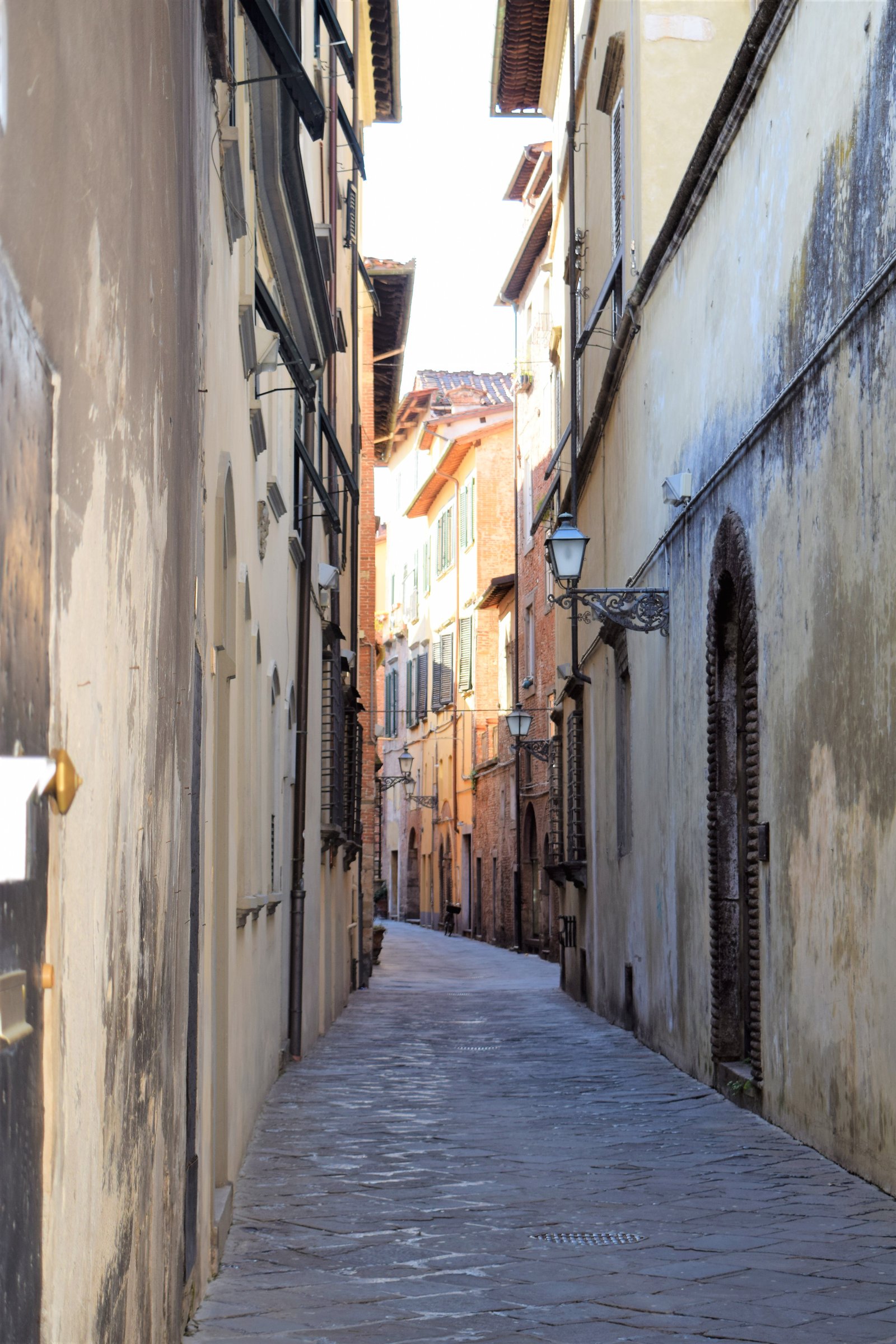
Street views
Search “Lucca” for more information on our blog.
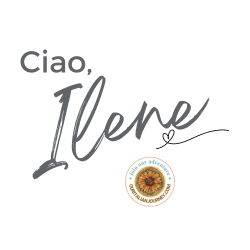

Editor’s Note: This post was originally published in September 2017 and was updated in September 2024 for accuracy and additional information.

